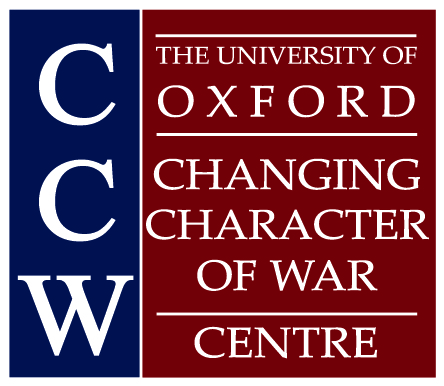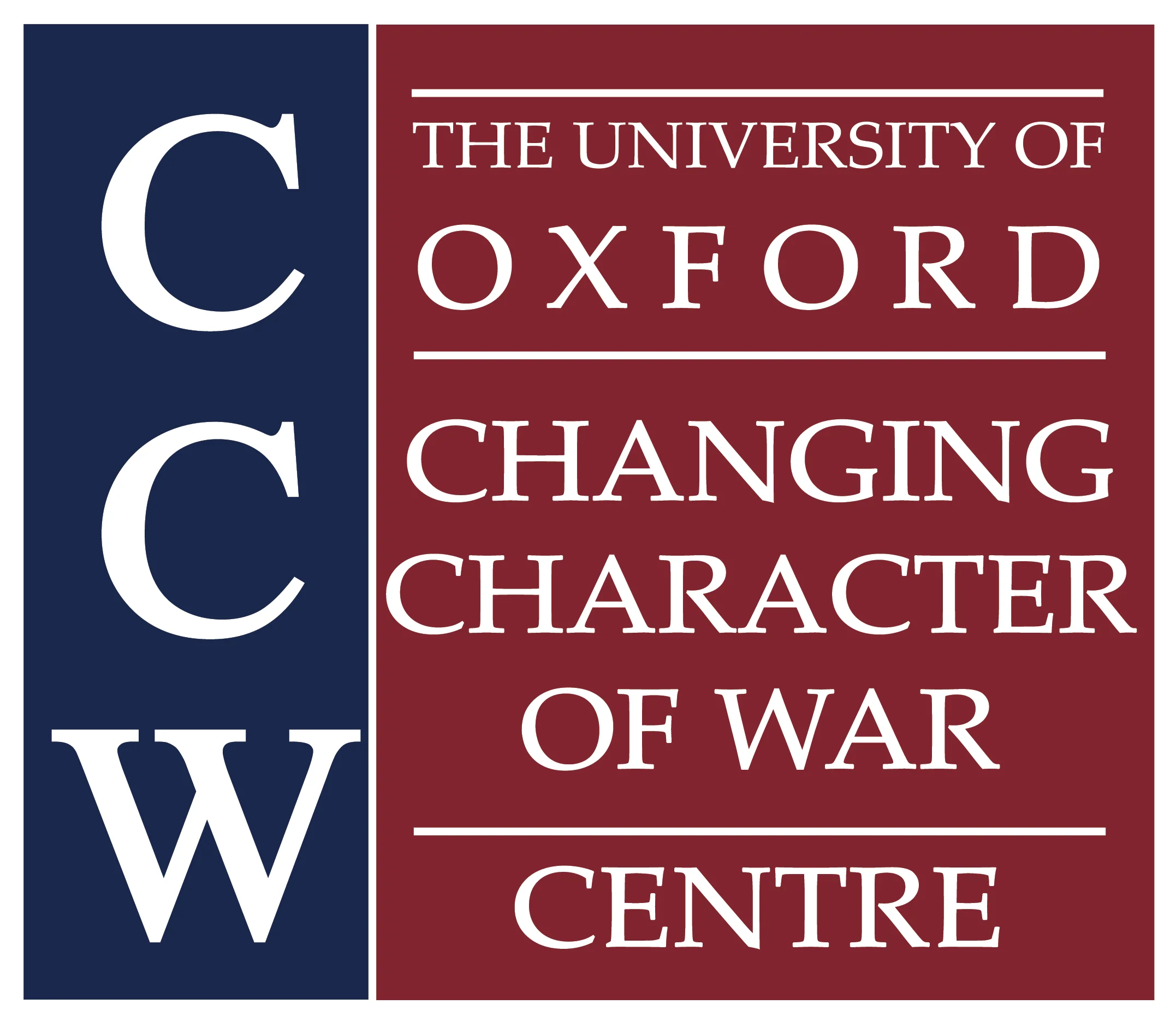Andrew Monaghan reviews Horvath's book which examines Moscow’s concern about Western regime change operations — including those in Russia.
CCW Hosts First Executive Leadership Course
In Conversation with Annette Idler
Annette Idler discusses her research on peace negotiations in Colombia with Adam McCauley. Originally published as a feature piece for the Department of Politics and International Relations, University of Oxford.
In Conversation with Romain Malejacq
CCW Director of Studies Annette Idler writes for the Washington Post
CCW Director of Studies Annette Idler writes for the Washington Post on the Colombian Peace Process. A link to the article can be found here.
Book Review: 2017: War With Russia. An Urgent Warning from Senior Military Command by Andrew Monaghan
Ukraine Crisis in Hybrid Warfare Context with a Historical Perspective
CCW Visiting Fellow Dr Andrew Monaghan delivered a paper at the International Conference on Military and Security Studies (ICMSS) 2016, organised by the Turkish Army College on 14-16 March 2016. It is now available as part of the CCW 'Critically Thinking' Series.
Russian State Mobilization: Moving the Country on to a War Footing
CCW Visiting Fellow Andrew Monaghan has recently published an article with Chatham House examining Russian mobilisation and preparation for war. The article sets out what mobilisation means in Russian thinking, why it is taking place, and what it means in practical terms.
Article available here.
The First World War in the Middle East: 1911-1923. A Brief Report to the Globalising and Localising Great War Project
A conference was held at the Royal Military Academy Sandhurst and Pembroke College of the University of Oxford between 20 and 22 April 2016, to mark the centenary of the outbreak of the Arab Revolt and a critical stage in the First World War. It was wonderful to be able to bring together a great diversity of scholars from several nationalities and disciplinary specialisms, including cultural history, literature, Russianists, Arabists, and military history. If we needed any reminder that the First World War was a global war, then the range of papers and the cohering theme of the Middle East in the context of the conflict underscored it admirably. Resonances with the present also appeared throughout the conference. At a time when commentators talk of an era of perpetual war, especially with regard to the Middle East, our group of scholars set out to explore the period 1911-1923 and in doing so challenge and test the assertion that the conflicts of the present are the inherited legacies of the First World War.
The Evolution of Modern Grand Strategic Thought
New Event: The Great War in the Middle East 1911-1923
As part of a series of events on the First World War in the Middle East, there will be a one-day study day in Pembroke College on Friday 22 April. Speakers include Professor Eugene Rogan and Professor Margaret Macmillan. Please contact ruth.murray@pmb.ox.ac.uk to register to attend.
A link to the programme can be found here.
The New Biafrans: Discussing Discontent
A recent CCW public lecture illustrates the complexities of academic analysis in an increasingly connected world.
On March 8, 2016, Olly Owen’s public lecture for Changing Character of War (CCW) of drew unexpected attention. Owen, an anthropologist with Oxford’s Department of International Development, intended his discussion, The New Biafrans: Historical Imagination and Structure Conflict in Nigeria’s Separatist Revival, to be an exploration of history, memory, economics and politics in Nigeria’s southeast. The hope, Owen told CCW, was to prompt further investigation into the roots of the Nigerian independence movement, which has waxed and waned since the 1960s.
The New Strategist now available online
The New Strategist is a collaborative journal between the CCW Programme and the UK MOD's Development, Concepts and Doctrine Centre. The journal aims to acquaint readers with excellent and innovative multi- and inter-disciplinary scholarship in strategic studies that address the pressing concerns of strategic leaders in the fields of defence and security.
CCW Director Rob Johnson writes on Mobilisation and Initial Operations of the Indian Army in France and Flanders
CCW Director Rob Johnson British Journal for Military History article titled '"I Shall Die Arms in Hand, Wearing the Warriors’ Clothes”: Mobilisation and Initial Operations of the Indian Army in France and Flanders' is now available online here.
Executive Leadership Course of the Oxford Changing Character of War Programme
The CCW will be holding an intensive one-week executive leadership course that will equip participants with a critical understanding of the changing character of armed conflict as well as the conceptual and practical tools necessary to anticipate and tackle future conflict. The course takes an interdisciplinary, participatory approach and combines academic rigour with innovative practical thinking. It is critical for current and future leaders involved in policy-formulation, practice or research related to security, defence and peacebuilding.
CCW Working Group on Armed Conflict off to a Success
Today saw the successful launch of the CCW Working Group on Armed Conflict, attended by students, faculty and visiting fellows from departments and programmes across the university. Eminent scholar of civil war and violence, Stathis Kalyvas, gave a presentation on how the study of civil war and armed conflict has progressed over the last decades, and how future research can tackle important questions about the causes, character and consequences of violent conflict.
Launching the CCW Working Group on Armed Conflict: a Morning Roundtable with Stathis Kalyvas
The working group is a student-led initiative that aims to facilitate research into the causes, character and consequences of armed conflict. With meetings taking place every fortnight, the group serves as a forum for students and researchers to discuss their own work and developments in the field, and as a meeting point to find areas of mutual interest and opportunities for collaboration and cooperation. Interdisciplinary in outlook and open to diverse theoretical and methodological approaches, the group is for anyone interested in advancing the study of armed conflict, civil war and related issues such as peacebuilding and post-war reconstruction.
Is God Watching You?
CCW Steering Committee member Dominic Johnson appeared on BBC Radio 4 this morning in a debate with Conor Cunningham titled 'Is God Watching you?' Available here.
UK Strategy Forum
On Tuesday 2 February 2016 the Changing Character of War Programme was delighted to host Air Chief Marshal Sir Stuart Peach GBE KCB ADC DL to chair the fourth meeting of CDS’ Strategy Forum, exploring the theme ‘UK Defence: International By Design’. The eighty delegates at the Forum, drawn from the armed forces, government, academia, and the private sector, will be also be addressed by Professor Janne Matlary (Professor of International Relations at the University of Oslo and the Norwegian Command and Staff College and former State Secretary, Norwegian Ministry of Foreign Affairs).









